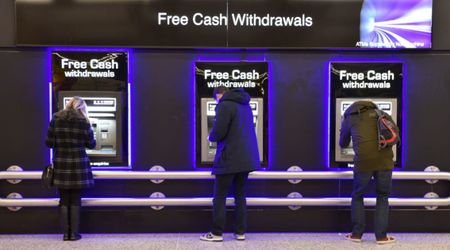Here's Your Guide to Credit Card Debt Forgiveness

High credit card debt can be difficult to manage during periods of inflation. In addition, with rising interest rates, credit card minimum payments are on the rise. This can lead to financial hardships, especially if you live on less and have accumulated more credit card debt. Is it possible to get rid of your credit card debt? Yes, in some cases it is possible. You may have heard of credit card debt forgiveness. For example, filing for bankruptcy can lead to your credit card debt being forgiven. However, it’s not the only way to clear credit card debt. Here’s what you need to know.

Understanding Debt Settlement Programs
A percentage of your liabilities may be forgiven through credit card debt forgiveness programs, commonly referred to as debt settlement programs. Often, businesses work with your lenders to pay off credit card balances at lower rates than you did when you signed up for the debt-sharing program. The remaining balance as part of this process is then distributed. Setting up a timely payment plan usually starts with a discussion of your expenses, income, and budget in case you want to enroll in the program These contributions are placed in a designated savings account, where they remain until you have enough money to begin paying off your loan. This will be followed by a conversation with loan officers and creditors. These conversations will result in a portion of your card charge being forgiven if all goes according to plan.
Debt Settlement Fees
There is usually a fee associated with using a credit card debt forgiveness service, which after negotiation ranges from 15% to 25% of the total balance in any resolution account but you can avoid this fee by disputing it which you will fix yourself. Here’s how it works: You keep that money in a separate account and use it to make payments to your creditors instead. You can start negotiating if you have enough savings to pay your minimum credit card bill, which is usually around 55% of that. Tell the lender your minimum payment over the phone. To give yourself a chance to talk and still stay within your budget of 55%, you could offer to pay about 40% or less of the loan. Discuss until you find a settlement that fits your budget. Then, repeat the process with your next lowest bill until you’ve paid all your debts.

Considering Bankruptcy as an Option
Another way to erase your credit card debt is to file for bankruptcy. However, choosing this option can have long-term consequences for your finances and credit. However, there are some cases where bankruptcy may be the better option. "In certain situations, filing for bankruptcy may be the best course of action, but it should always be your last option," says MDRN Capital's founder and CEO Aaron Cirksena. "For example, if you suddenly lose your job and exhaust your emergency savings, bankruptcy might be your only option."
However, bankruptcy should also be considered for other reasons. "Unexpected bills that you hadn't planned for could also lead you to bankruptcy," adds Cirksena. "And if you've used up all your other resources and only have retirement savings left, bankruptcy might be something to consider, especially because retirement accounts are usually protected during bankruptcy."
Seeking Professional Guidance
You can use a collection agency, speak directly with your creditors, or file for bankruptcy to cancel your credit card debt. However, it’s important to understand that these decisions can ultimately lower your credit score. Taxes can have an impact, especially when debts are settled. Therefore, it makes sense to look into loan forgiveness programs, especially if you have financial problems. If you find yourself in this predicament, seek the guidance of a financial professional immediately.
























